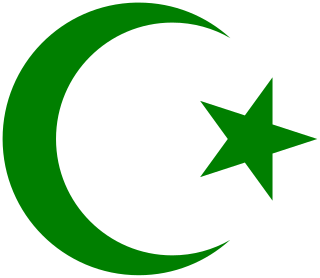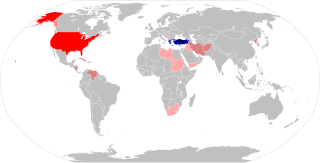 W
WThe Adopt-a-Highway program, and the very similar Sponsor-a-Highway, are promotional campaigns undertaken by U.S. states, provinces and territories of Canada, and some national governments outside North America to encourage volunteers to keep a section of a highway free from litter. In exchange for regular litter removal, an organization is allowed to have its name posted on a sign in the section of the highways they maintain.
 W
WAfrocentrism is an approach to the study of world history that focuses on the history of people of recent African descent. It is in some respects a response to global (Eurocentric) attitudes about African people and their historical contributions; it seeks to counter what it sees as mistakes and ideas perpetuated by the racist philosophical underpinnings of western academic disciplines as they developed during and since Europe's Early Renaissance as justifying rationales for the enslavement of other peoples, in order to enable more accurate accounts of not only African but all people's contributions to world history. Afrocentricity deals primarily with self-determination and African agency and is a Pan-African point of view for the study of culture, philosophy, and history.
 W
WThe alt-lite, also known as the alt-light and the new right, is a loosely-defined right-wing political movement whose members regard themselves as separate from both mainstream conservatism and the far-right, white nationalist perspective characteristic of the alt-right, being somewhat between them in cultural views. The concept is primarily associated with the United States, where it emerged in 2017.
 W
WThe alt-right, an abbreviation of alternative right, is a loosely connected far-right, white nationalist movement. A largely online phenomenon, the alt-right originated in the United States during the early 2010s before establishing a presence in other countries and declining after 2017. The term is ill-defined, having been used in different ways by alt-right members, media commentators, and academics.
 W
WAmericentrism, also known as American-centrism or US-centrism, is a tendency to assume the culture of the United States is more important than those of other countries or to judge foreign cultures based on American cultural standards. It refers to the practice of viewing the world from an overly US-focused perspective, with an implied belief, either consciously or subconsciously, in the preeminence of American culture.
 W
WBolsominion is a pejorative term used by opponents of current Brazilian President Jair Bolsonaro to refer to a segment of his supporters. The word is an amalgamation combining the first half of the surname Bolsonaro, and the word minion, which is also the name of the characters in the Despicable Me franchise. The term gained prominence in Brazilian media with the rise of Bolsonaro throughout his 2018 presidential campaign.
 W
WThe chairperson is the presiding officer of an organized group such as a board, committee, or deliberative assembly. The person holding the office, who is typically elected or appointed by members of the group, presides over meetings of the group, and conducts the group's business in an orderly fashion.
 W
W"Communazi" is an American political neologism, "coined by a reporter" and made popular by Time days after the Molotov–Ribbentrop Pact. It implied that both Communism and Nazism were one and the same because they were essentially totalitarian, whether left or right in belief. It continues to receive mention, largely in its historial context, to the present.
 W
WDobhashi, is a neologism used to refer to a register which had the Middle Bengali language as its dialectal basis but was shifted to a highly Persianised format. Traditionally, it was the most customary form of writing in Bengali prior to the language's reformation during the colonial period. This style evolved in not only the Eastern Nagari script, but also in Sylheti Nagri as well as the modified Arabic script used in Greater Chittagong, West Bengal and Arakan. The register has had a major influence to the modern Bengali dialects of Eastern and Southeastern Bengal, particularly Chittagonian and Noakhailla among others.
 W
WEurabia is a political neologism, a portmanteau of Europe and Arabia, used to describe a far-right Islamophobic conspiracy theory, involving globalist entities allegedly led by French and Arab powers, to Islamise and Arabise Europe, thereby weakening its existing culture and undermining a previous alignment with the United States and Israel.
 W
WEuro-Slavism, also spelled Euroslavism, is a political concept that evolved from pan-Slavism. It aims to solve problems of Slavic peoples within the European Union. Euroslavists promote cooperation and unity among Slavic peoples, which can be achieved through European integration.
 W
WEuropean culture comprises a wide variety of national cultures, which influenced the creation of the various European nation-states. The process of European integration pursued by the European Union co-exists with national loyalties and national patriotism.
 W
WEuroscepticism, also spelled as Euroskepticism or EU-scepticism, means criticism of the European Union (EU) and European integration. It ranges from those who oppose some EU institutions and policies, and seek reform, to those who oppose EU membership and see the EU as unreformable. The opposite of Euroscepticism is known as pro-Europeanism, or European Unionism.
 W
WThe Eurosphere or the European Empire is a concept associated with the public intellectual Mark Leonard, Oxford University academic Jan Zielonka, the European Union Director-General for Politico-Military Affairs Robert Cooper and the former European Commission President José Manuel Barroso.
 W
WFreedom pineapples was a political and social response in 2021 to a mainland Chinese ban on the importation of pineapples from Taiwan.
 W
WThe Indian Century is the idea that the 21st century will be dominated by India, as the 20th century is often called the American Century, and the 19th century as Pax Britannica. The phrase is used particularly in the assertion that the economy of India could overtake the economy of the United States and economy of China as the largest national economy in the world, a position it held from 1 to 1500 CE and from 1600 to 1700 CE.
 W
WAn insurgency began in Iraq after the 2003 US-led invasion, and lasted throughout the ensuing Iraq War which lasted from 2003 until 2011. The first phase of the insurgency began shortly after the 2003 invasion and prior to the establishment of the new Iraqi government. From around 2004 to May 2007, the insurgency primarily targeted the Multi-National Force – Iraq. Latterly Iraqi security forces were also targeted, as they were seen by Iraqi insurgents as collaborators with the coalition.
 W
WIslamic revival refers to a revival of the Islamic religion. The revivers are known in Islam as Mujaddids.
 W
W"Islamofascism", first described as "Islamic fascism" in 1933, is a term popularized in the 1990s drawing an analogical comparison between the ideological characteristics of specific Islamist or Islamic fundamentalist movements and short-lived European fascist movements of the early 20th century, neo-fascist movements, or totalitarianism.
 W
WJihadism is a neologism referring to "militant Islamic movements that are perceived as existentially threatening to the West" and "rooted in political Islam". Appearing earlier in Pakistani and Indian media, Western journalists adopted the term in the aftermath of the September 11 attacks of 2001. It has since been applied to various insurgent Islamic extremist, militant Islamist, and terrorist individuals and organizations whose ideology is based on the Islamic notion of jihad.
 W
WLesbian, gay, bisexual, and transgender (LGBT) movements are social movements that advocate for LGBT people in society. Social movements may focus on equal rights, such as the ongoing movement for same-sex marriage, or they may focus on liberation, as in the gay liberation movement of the 1960s and 1970s. Earlier movements focused on self-help and self-acceptance, such as the homophile movement of the 1950s. Although there is not a primary or an overarching central organization that represents all LGBT people and their interests, numerous LGBT rights organizations are active worldwide. The earliest organizations to support LGBT rights were formed in the early 20th century.
 W
WLimitarianism refers to several different types of ethical theories. Though Limitarianism applies differently to varied fields of study, what is always common is an examination of when it is proper, moral or ethical to interfere and intervene in the lives and freedoms of individuals, in order to benefit society as a whole. It sometimes presents as a principle of distributive justice in economic theories. Unlike encompassing systems of political and economic intervention, which seek to make dramatic changes to the social order, Limitarianism deals with specific instances and subjects, for which the necessity and justification of intervention may be examined. As its name implies, Limitarianism asks the question of how setting certain limits for human beings can lead to positive outcomes.
 W
W"Little Eichmanns" is a term used to describe people whose actions, while on an individual scale may seem relatively harmless even to themselves, taken collectively create destructive and immoral systems in which they are actually complicit. The name comes from Adolf Eichmann, a Nazi bureaucrat who helped to orchestrate the Holocaust, but claimed that he did so without feeling anything about his actions, merely following the orders given to him.
 W
WMaafa, African Holocaust, Holocaust of Enslavement, or Black Holocaust are political neologisms popularized from 1988 onwards and used to describe the history and ongoing effects of atrocities inflicted on African people, particularly when committed by non-Africans which continues to the present day through imperialism, colonialism and other forms of oppression. For example, Maulana Karenga (2001) puts slavery in the broader context of the Maafa, suggesting that its effects exceed mere physical persecution and legal disenfranchisement: the "destruction of human possibility involved redefining African humanity to the world, poisoning past, present and future relations with others who only know us through this stereotyping and thus damaging the truly human relations among peoples".
 W
WMadkhalism is a strain of Islamist thought within the larger Salafist movement based on the writings of Rabee al-Madkhali. Arab states have generally favored Madkhalism due to its support for secular forms of government as opposed to other strains of Salafism, and Madkhalism's decline in Saudi Arabia has been connected with a decline in support for secular forms of government in the Muslim world.
 W
WA micronation is a political entity whose members claim that they belong to an independent nation or sovereign state lacking legal recognition by world governments or major international organizations. Most are geographically very small, but range in size from a single square foot to half a million square miles (Westarctica). They are usually the outgrowth of a single individual.
 W
WPan-European identity is the sense of personal identification with Europe, in a cultural or political sense. The concept is discussed in the context of European integration, historically in connection with hypothetical proposals, but since the formation of the European Union (EU) in the 1990s increasingly with regard to the project of ever-increasing federalisation of the EU. The model of a "pan-European" union is the Carolingian Empire, which first defined "Europe" as a cultural entity as the areas ruled by the Roman Catholic Church, later known as "Medieval Western Christendom". The original proposal for a Paneuropean Union was made in 1922 by Count Richard von Coudenhove-Kalergi, who defined the term "pan-European" as referring to this historical sense of the western and central parts of continental Europe encompassing the cultures that evolved from medieval Western Christendom instead of the modern geographic definition of the continent of Europe. Coudenhove-Kalergi saw the pan-European state as a future "fifth great power", in explicit opposition to the Soviet Union, "Asia", Great Britain and the United States.
 W
WThe policy of exporting the Islamic Revolution is a strategy in Iran's foreign policy that believes in exporting the teachings of the Iranian Revolution of 1979 to achieve similar examples in Islamic and even non-Islamic countries. This policy has been explicitly and at various times announced by Ruhollah Khomeini, the founder of the Islamic Republic of Iran. One of the basic slogans of the Islamic Revolution of Iran, which has won based on religious ideology, is the export of the revolution. Accordingly, the purpose is exporting the revolution as a culture, ideology and an intellectual and epistemological method.
 W
WPost-Islamism is a neologism in political science, the definition and applicability of which has led to an intellectual debate. Asef Bayat and Olivier Roy are among the main architects of the idea.
 W
WPutinversteher or Putin-Versteher is a German political neologism and a buzzword, which literally translates "Putin understander", i.e., "one who understands Putin". It is a pejorative reference to politicians and pundits who express empathy to Vladimir Putin, i.e., who say "yes, but you have to understand Putin's position". A major cornerstone of "Putin-friendly" attitude is the "legitimate interests of Russia" in the post-Soviet states, while another typical trait is anti-Americanism. A similar term is Russlandversteher, "Russia understander". It may also be translated as "Putin-Empathizer.
 W
WA quasi-state or state-like entity, including what is termed a proto-state, is a political entity that does not represent a fully institutionalized or autonomous sovereign state.
 W
WRegressive left is a pejorative term for a branch of left-wing politics that is accused of being accepting of or sympathetic to views that conflict with liberal principles, especially tolerating Islamism.
 W
WRemix culture, sometimes read-write culture, is a term describing a society that allows and encourages derivative works by combining or editing existing materials to produce a new creative work or product. A remix culture would be, by default, permissive of efforts to improve upon, change, integrate, or otherwise remix the work of copyright holders. While combining elements has always been a common practice of artists of all domains throughout human history, the growth of exclusive copyright restrictions in the last several decades limits this practice more and more by the legal chilling effect. In reaction, Harvard law professor Lawrence Lessig, who considers remixing a desirable concept for human creativity, has worked since the early 2000s on a transfer of the remixing concept into the digital age. Lessig founded the Creative Commons in 2001, which released Licenses as tools to enable remix culture again, as remixing is legally prevented by the default exclusive copyright regime applied currently on intellectual property. The remix culture for cultural works is related to and inspired by the earlier Free and open-source software for software movement, which encourages the reuse and remixing of software works.
 W
WA rogue state otherwise known as an outlaw state is a term applied by some international theorists to states that they consider threatening to the world's peace. This means being seen to meet certain criteria, such as being ruled by authoritarian or totalitarian governments that severely restrict human rights, sponsoring terrorism and seeking to proliferate weapons of mass destruction. The term is used most by the United States, and in his speech at the United Nations (UN) in 2017, U.S. President Donald Trump reiterated this phrase. However, it has been applied by other countries as well.
 W
WSalafi jihadism or jihadist-Salafism is a transnational, hybrid religious-political ideology based on the Sunni sect of Islamism, seeking a global caliphate, advocacy for "physical" (military) jihadist and Salafist concepts of returning to what adherents believe to be the "true Islam". The ideological foundation of the movement was laid out by a series of prison-writings of the Egyptian Sunni Islamist theoretician Sayyid Qutb during the 1960s.
 W
W"Think of the children" is a cliché that evolved into a rhetorical tactic. Literally, it refers to children's rights. In debate, however, it is a plea for pity that is used as an appeal to emotion, and therefore it becomes a logical fallacy.
 W
WThe phrase "thoughts and prayers" is often used by officials and celebrities in the United States as a condolence after a tragic event, such as a deadly natural disaster or mass shooting. The phrase has received criticism for its repeated usage in the context of gun violence or terrorism, with critics claiming "thoughts and prayers" are offered as substitutes for action such as gun control or counter-terrorism.
 W
WTrumpism, which includes the rhetoric, methods of acquiring power, approach to government, movement and recurring themes of 45th President of the United States Donald Trump and his core followers, exists in Canada.